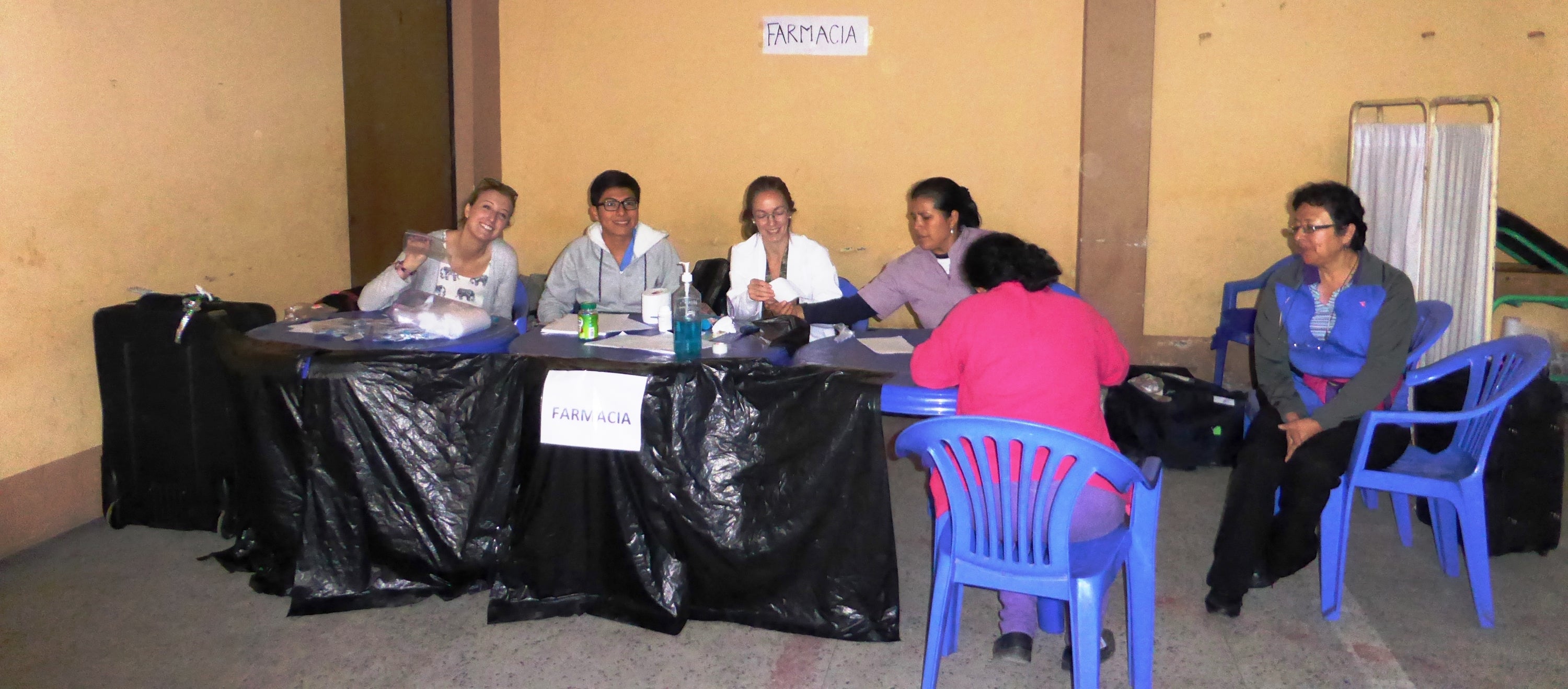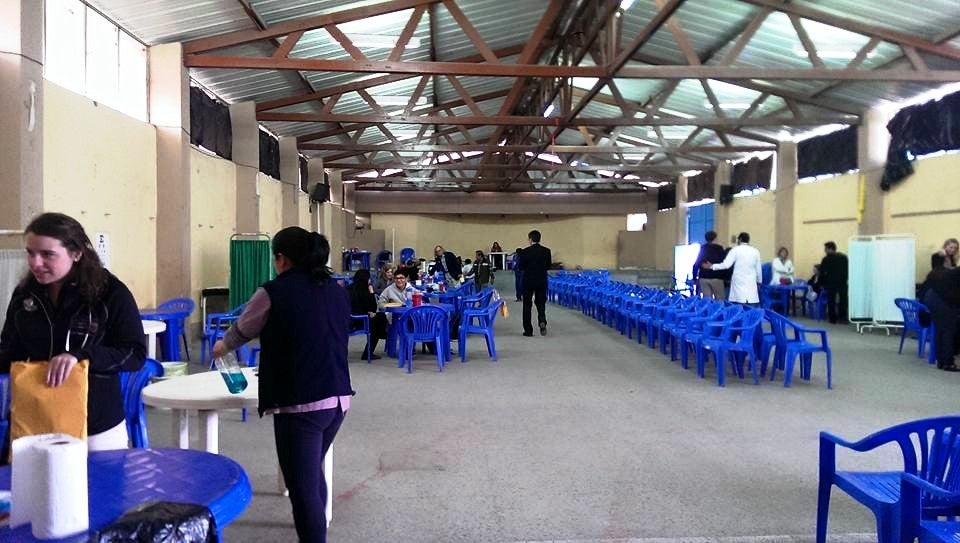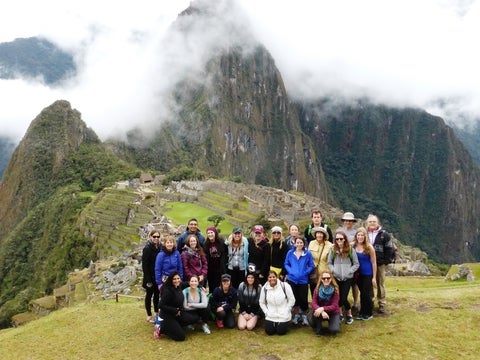A stack of suitcases filled with medications, a CPS and an English-Spanish medical phrasebook – that’s what Sandra MacTavish, a class of 2016 Waterloo Pharmacy student, had to work with when she landed in Peru last summer.

Sandra and fellow volunteers at the pharmacy clinic in Lima.
Sandra was one of 23 healthcare students and preceptors volunteering with McMaster University’s Medical School and Brock University’s Solidarity Experiences Abroad (SEA). The program runs medical clinics for the people of San Juan de Miraflores in the shantytowns of Lima, Peru.
First days in Peru
Upon arriving in Peru, Sandra and the other volunteers partnered with the staff from the Policlinico Sagrada Família. The group is an established medical clinic for the shantytowns and they helped the SEA volunteers run the first week of their clinic out of the extra space that Policlinico staff was not using. After filling up all the exam rooms, and finding space in hallways, there was a small room Sandra and her colleagues used to set up the clinic’s pharmacy.

The Clinic where patients waited to use the free healthcare services volunteers provided.
Between the vertically stacked suitcases that made locating medicines challenging, a line of eager patients, and the small handful of Spanish phrases she knew, Sandra’s first day was a busy one.
“Peruvian medical students had volunteered to act as our translators,” Sandra recalls. “But unfortunately, they weren’t around our first day because they had their final OSCEs. We became very good at charades to try and communicate with the volunteering Peruvian clinic staff who were helping us counsel patients on their medications in Spanish.”
Despite hectic beginnings, over time a system emerged and Sandra learned the ropes of operating a pharmacy the Peruvian way.
It felt kind of like taking off the training wheels as I was running a pharmacy on my own. It forced me to become confident with drug dosing, checking prescriptions and problem solving to find suitable alternatives when we ran out of medications.
Emerging challenges
Extreme poverty is common in this part of Lima. Sandra was the only volunteer from a pharmacy program and as such, she had to determine how to best to manage medications in a way that worked with the harsh realities of her patients’ lives. Her patients often couldn’t afford medications or were limited in access to care because they feared taking time off and risking job loss.
Even the very storage of medications proved a challenge.
"To paint a picture for you, the shanty towns are built in desert land on the outskirts of town where the people have migrated down from the Andes Mountains to escape terrorism and to find hope for a better life, Sandra explains. "Housing is a work in progress as many people can only afford small amounts of construction materials at a time resulting in dwellings that are pieced together bit by bit."
With no access to safe storage, parents worry that their children or others could easily get their hands on the wrong medications. As a result, Sandra and colleagues quickly learned that the Peruvian practice was to dispense only 3-4 days worth of medication.
A lesson in resiliency
Sandra’s patients were living hard lives, often filled with physical labour. Musculoskeletal injuries were common, as were tape worms, fungal infections and chronic conditions like diabetes or hypertension. Often, patients would travel long distances on foot for the opportunity to access the free care clinics provided.
The thing I really admired was that the people, despite all their hardships, had high spirits, were motivated to work hard and improve their living conditions and were truly grateful for the care they received. This experience really opened my eyes to the resilience of the human spirit.

The volunteers also had the opportunity to travel in the Andes and visit the ancient Incan city Machu Picchu.